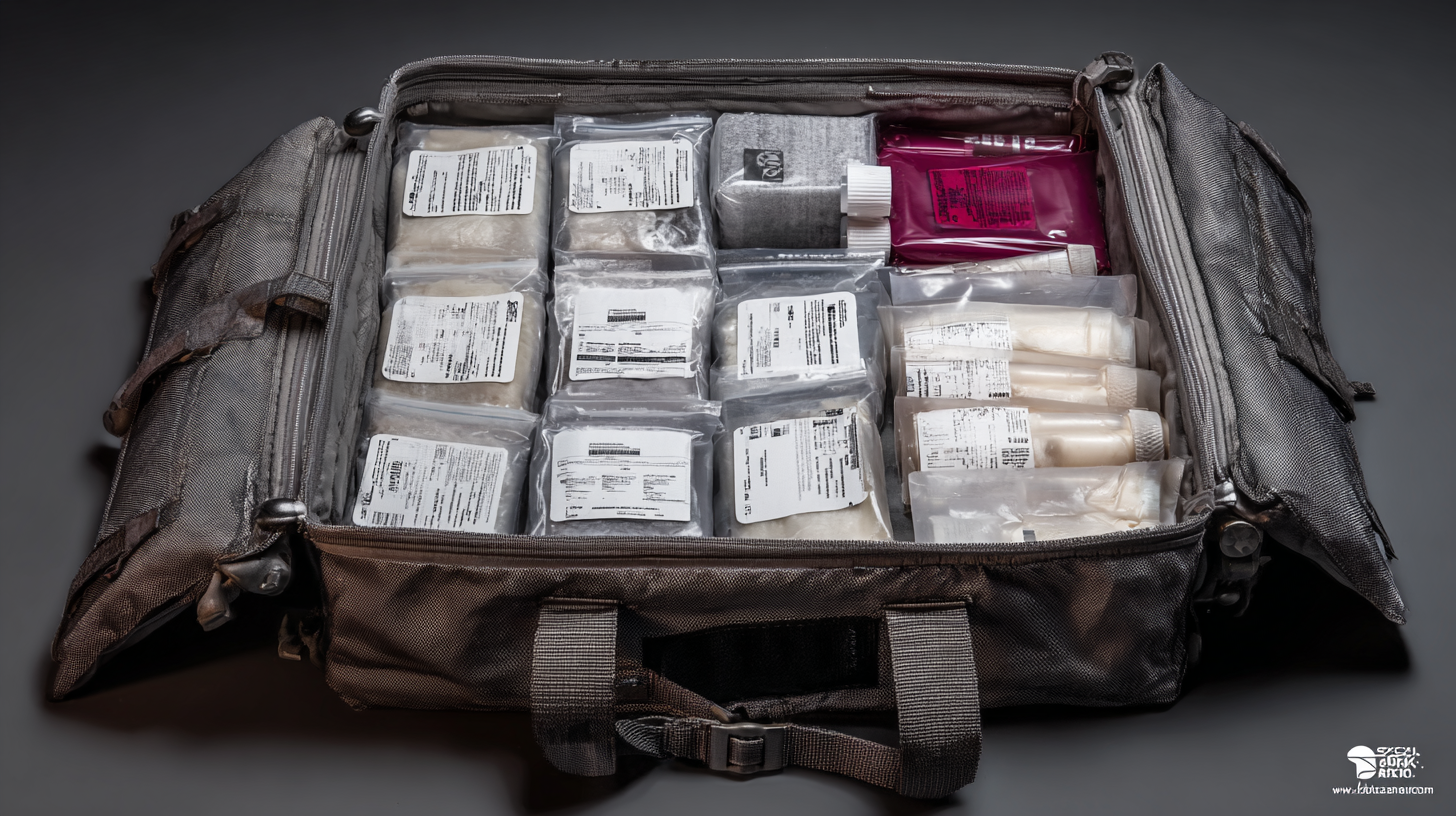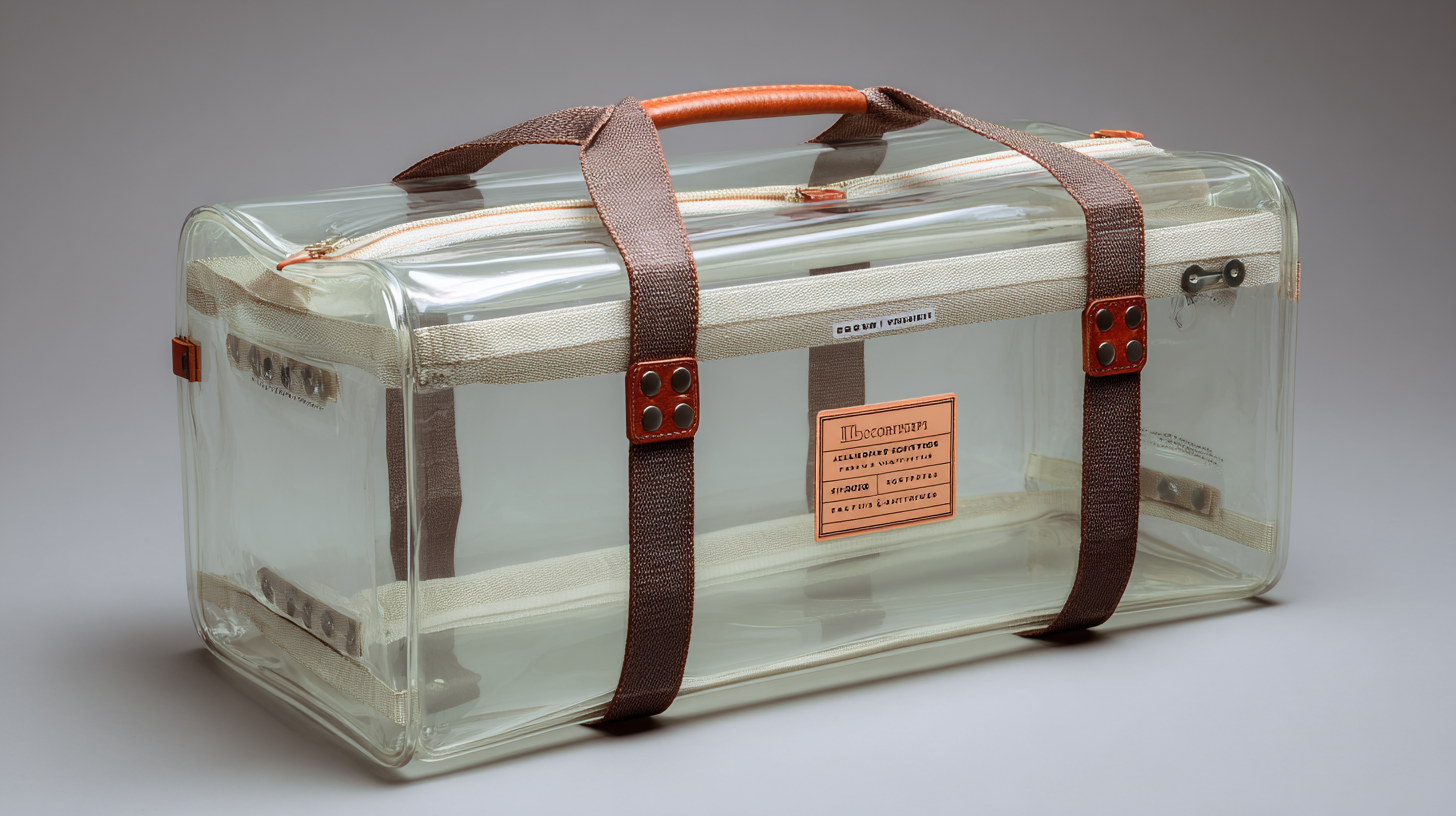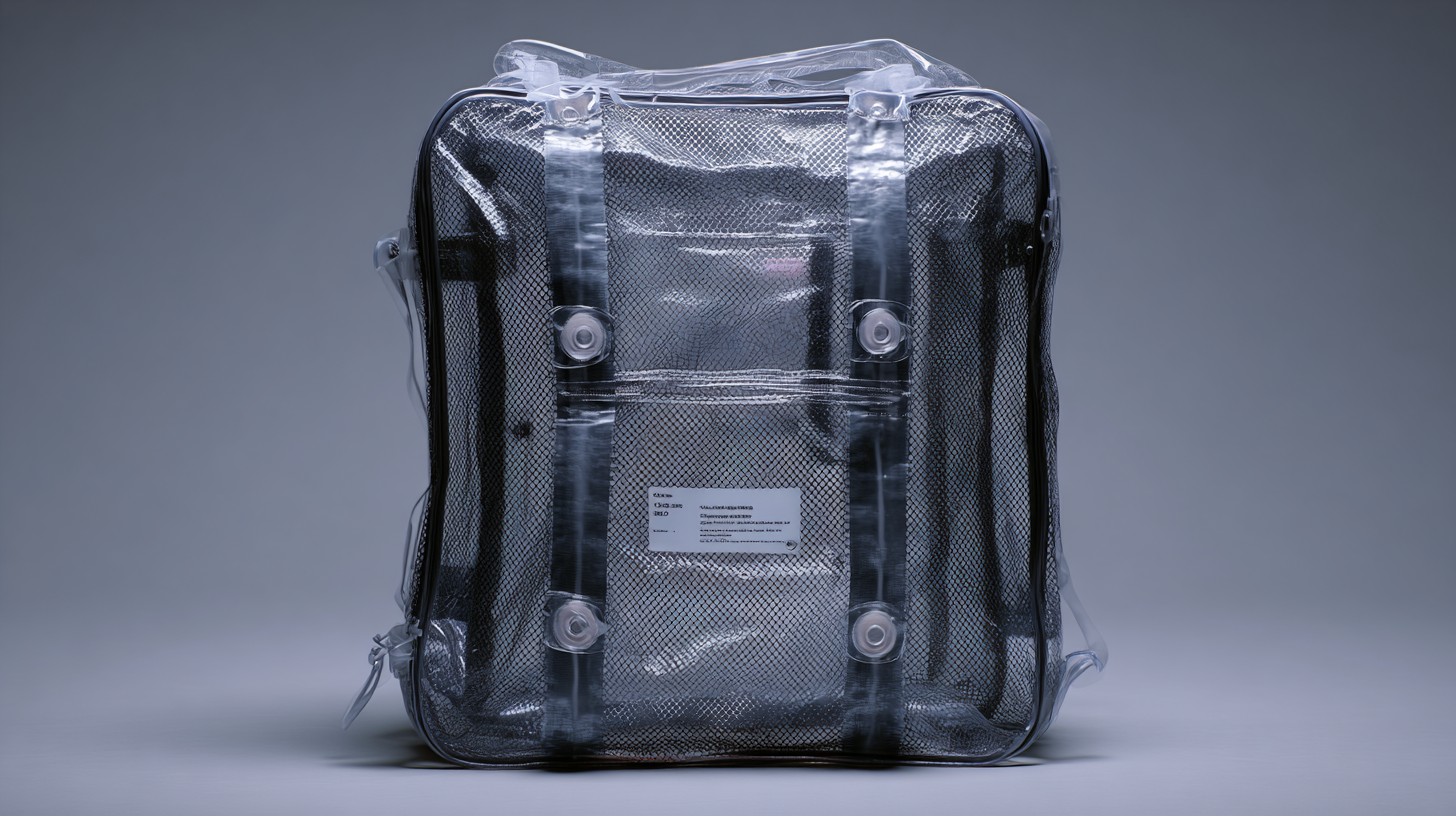 +86 178 5514 5298
+86 178 5514 5298
Leave Your Message
-
 CONTACT NUMBER
CONTACT NUMBER -
 CONTACT NUMBER
CONTACT NUMBER -
 CONTACT NUMBER
CONTACT NUMBER



The demand for efficient and safe transportation of biological specimens, particularly in the healthcare and research sectors, has led to the development of various alternatives to traditional Specimen Transport Bags. According to a report by Market Research Future, the global market for specimen transportation solutions is projected to reach USD 1.5 billion by 2025, driven by the increasing need for reliable and compliant transport methods in laboratories and medical institutions. As the industry evolves, innovative materials and designs are emerging to enhance both the security and integrity of specimens during transit, catering to diverse applications ranging from clinical diagnostics to pharmaceutical research. This blog will explore unique options and alternatives to conventional Specimen Transport Bags, highlighting their benefits, evolving technology, and the critical role they play in maintaining the quality of biological samples worldwide.

When it comes to specimen transport, the materials used for bags play a crucial role in ensuring safety and efficiency. As industries evolve, innovative alternatives are emerging that meet both functional needs and sustainability goals. Recent reports indicate a growing demand for eco-friendly materials in the bag market, which is projected to see significant growth from 2025 to 2035. This shift highlights a notable interest in versatile and reusable carrying solutions across various sectors, including healthcare.
One of the top innovative material choices is bioplastics, which are derived from renewable resources such as cornstarch. These offer a lightweight yet durable option for transporting specimens while minimizing environmental impact. Another promising material is recycled polyester, made from post-consumer plastics, which not only reduces waste but also provides a robust solution for transport bags. Additionally, breathable, antimicrobial fabrics are gaining traction, ensuring that specimens remain uncontaminated during transit, a critical factor in maintaining sample integrity.
As the market adapts to these new materials, stakeholders in the healthcare and laboratory fields should consider how these alternatives can enhance their specimen transport processes while adhering to sustainable practices. Embracing these innovations aligns with broader industry trends towards responsible consumption and environmental stewardship.
| Material Type | Features | Temperature Resistance | Biodegradability | Cost Efficiency |
|---|---|---|---|---|
| Polyethylene | Lightweight, Water-resistant | -5°C to 60°C | No | Low |
| Tyvek | Tear-resistant, Breathable | -20°C to 49°C | Yes | Medium |
| PVC | Durable, Chemical resistant | -10°C to 40°C | No | Moderate |
| Nylon | Flexible, High tensile strength | -30°C to 70°C | No | High |
| Biodegradable Plastics | Eco-friendly, Compostable | -5°C to 45°C | Yes | Medium |
When it comes to specimen transport solutions, durability is a critical factor that ensures the integrity of sensitive biological samples. According to a 2020 report from the Global Health Security Index, over 80% of health facilities worldwide face challenges in maintaining proper specimen handling during transport. A robust transport bag can withstand various environmental conditions, reducing the risk of contamination or damage. For instance, bags made from puncture-resistant materials can prevent leaks that might compromise sample integrity, especially when transporting hazardous materials.
Moreover, the International Society for Biological and Environmental Repositories (ISBER) emphasizes that almost 30% of sample degradation occurs during transportation due to inadequate packaging. Therefore, investing in high-quality specimen transport bags can significantly mitigate these risks. Durability doesn't only refer to the material; it also encompasses temperature stability, as fluctuations can adversely affect biological specimens. Utilizing bags that provide insulation helps maintain the required temperatures, keeping the samples safe until they reach their destination. As the industry continues to evolve, prioritizing durability in transport solutions is essential for ensuring reliable specimen analysis and enhancing overall research outcomes.
When selecting a high-quality specimen transport bag, there are several unique features that can enhance both functionality and safety. According to a recent report by the International Journal of Environmental Research and Public Health, proper specimen transport is critical, as nearly 20% of biological samples are compromised during transport due to inadequate packaging. Therefore, investing in bags that are specifically designed for specimen transport is essential.
 One key feature to consider is insulation and temperature control. This is particularly important for samples that are temperature-sensitive, as fluctuations can lead to degradation. Look for bags with built-in thermal insulation or those designed to accommodate ice packs. Additionally, leak-proof seals are crucial to prevent contamination and loss of samples. Ensure that the bags not only meet regulatory requirements but also undergo rigorous testing for durability and seal integrity.
One key feature to consider is insulation and temperature control. This is particularly important for samples that are temperature-sensitive, as fluctuations can lead to degradation. Look for bags with built-in thermal insulation or those designed to accommodate ice packs. Additionally, leak-proof seals are crucial to prevent contamination and loss of samples. Ensure that the bags not only meet regulatory requirements but also undergo rigorous testing for durability and seal integrity.
Tips for selecting the right transport bag include checking for anti-static properties, which can protect sensitive electronic sensors, and opting for lightweight materials that don’t sacrifice strength. Moreover, consider bags with clear labeling areas to prevent misidentification, as about 10% of specimens are lost due to labeling errors, as highlighted in a study by the American Society for Clinical Laboratory Science. Prioritizing these features can significantly increase the reliability of your sample transportation processes.
As the demand for sustainable practices continues to rise, exploring eco-friendly alternatives for specimen transport bags becomes imperative. Traditional plastic bags contribute significantly to environmental pollution, and the healthcare industry must pivot towards greener solutions. Two noteworthy alternatives that embody this sustainable shift are biodegradable bags and reusable containers made from recycled materials. These options not only reduce waste but also promote a circular economy within the specimen transport sector.

Biodegradable bags, crafted from materials such as cornstarch or other plant-based substances, decompose naturally over time, thus minimizing their environmental impact. Similarly, reusable containers offer a durable solution that, when properly sanitized, can be used multiple times, significantly decreasing the amount of single-use plastic waste produced. Adopting such innovations aligns with broader sustainability initiatives, echoing trends in various sectors focused on reducing greenhouse gas emissions and promoting eco-friendly practices.
As more organizations recognize the importance of sustainable logistics, these alternatives represent a crucial step towards responsible specimen transportation worldwide.
In the realm of clinical and laboratory settings, specimen transport has seen significant innovation spearheaded by several global suppliers. According to a report by MarketsandMarkets, the global specimen transport market is projected to reach USD 1.4 billion by 2027, driven by the increasing demand for timely and accurate lab test results. This surge in growth has prompted suppliers to develop more effective and efficient transport solutions, ensuring the integrity of samples from collection to analysis.
Leading the charge are companies like Thermo Fisher Scientific, who have introduced advanced temperature-controlled transport bags that maintain optimal conditions for sensitive specimens. Meanwhile, LabWare's recent innovations focus on smart packaging technologies that integrate real-time tracking, enhancing visibility during transit. Countries such as Germany and the United States remain at the forefront, yet suppliers from emerging markets are also making strides, offering cost-effective alternatives without compromising on quality. This diverse landscape of suppliers underscores a global trend towards improving the safety and reliability of specimen transport, catering to an ever-evolving healthcare environment.
